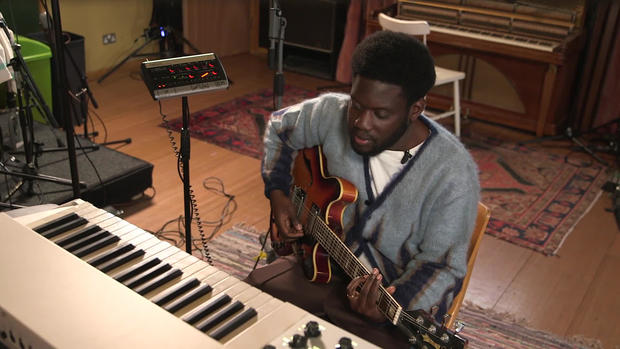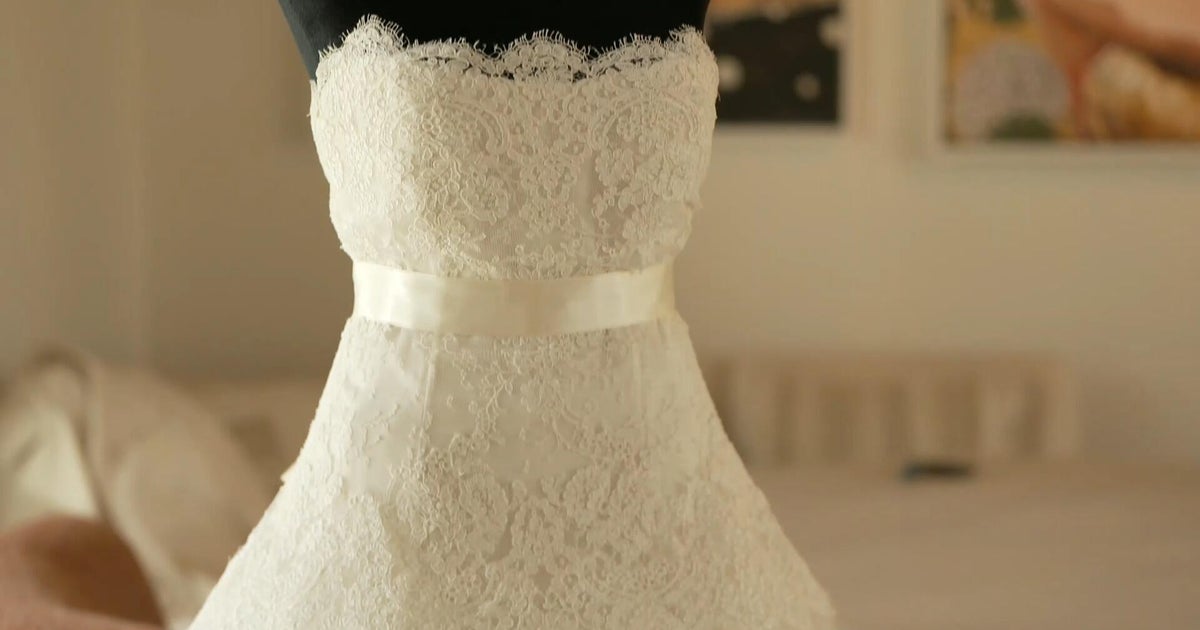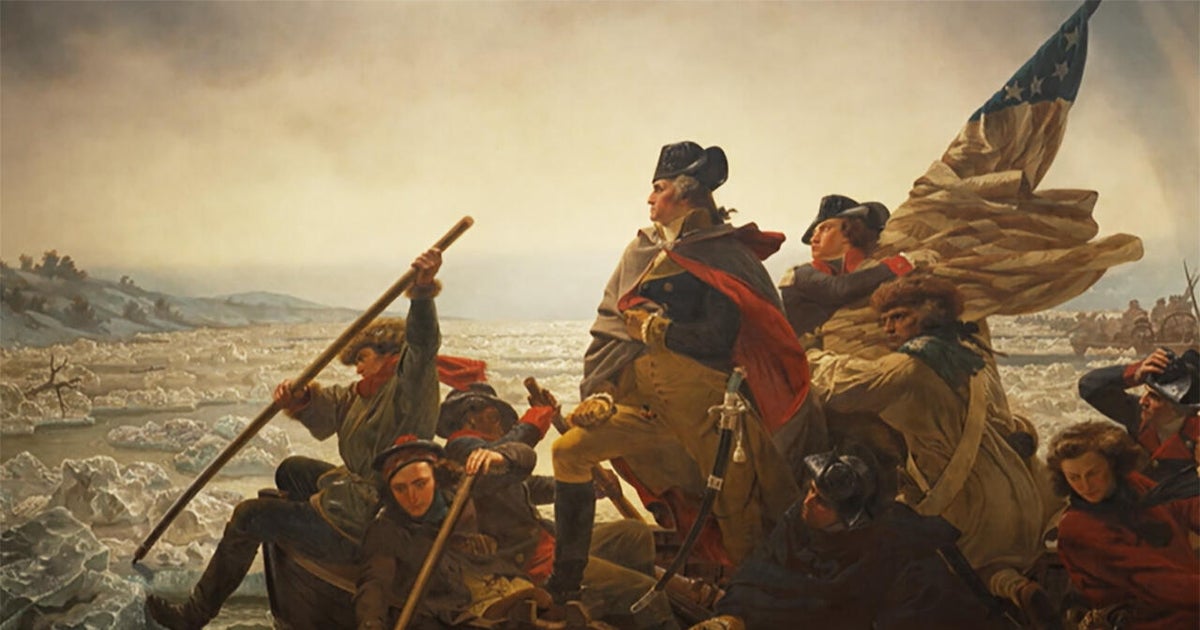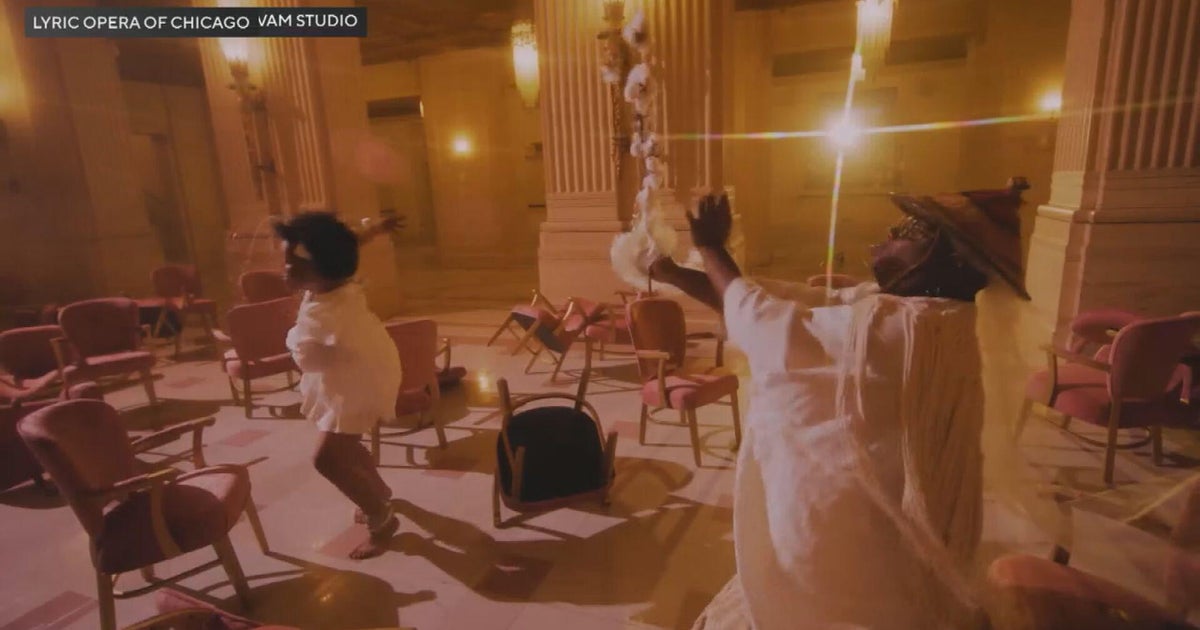Genre-busting musician Michael Kiwanuka on setting himself apart
Michael Kiwanuka's music does not fit in any one category; rather, it's a mix: blues, rock, funk, R&B, jazz and soul. "I think you should always kind of keep the listener or the audience guessing a little bit, you know?" he said.
The singer-songwriter has been called "Britain's Otis Redding. The thirty-three-year-old Kiwanuka is now on his third album. But it's this song, "Cold Little Heart," that put him on America's music map:
Did you ever want it?
Did you want it bad?
Oh my, it tears me apart …
Bleeding, I'm bleeding!
My cold little heart
Oh I, I can't stand myself
And I know in my heart
In this cold heart
I can live or I can die
I believe if I just try
You believe in you and I
– "Cold Little Heart"
It was a surprise to him, because when Kiwanuka agreed to let the HBO show "Big Little Lies" use it, he had no idea it would be on the opening credits. "I kept seeing #biglittlelies. I was just, like, 'Man, what is this thing?' So, I look at it, I was like, 'Wow, it's a big show!'"
The song introduced him to a whole new audience.
Correspondent Seth Doane said, "Rolling Stone called your music 'genre-busting.' Can it be difficult to be an artist who's genre-busting? Difficult because people can't put their finger on what exactly you are?"
"Being genre-busting, I think, is actually easier than being tied to one [genre]," Kiwanuka replied. "You just kind of just go in and start from scratch and see what happens."
Doane got to see that at a recording studio on London's East End, where Kiwanuka gave a sample of something he's still working out, which does not appear on any album, yet.
"You just sing random things, and then if it sticks in your head and it moves you a bit, then you probably might be onto something," he said. "Then, you make a cup of tea and you get on with the rest of the day."
"The tea is an important part?" Doane asked.
"Especially in the U.K.! You have to have a cup of tea or something, because I find if I spend too much time on it, that's when the kind of adult brain comes in. I remember being in the studio another time and, out of frustration because I was stuck, started singing this little riff, I just started going, ba da, ba duh, ba ba ba ba da pa."
That "little riff" became the title track of his sophomore album, "Love & Hate," which went to #1 on the U.K. charts:
His third album explores issues of race and his own cultural heritage, and just earned him his first Grammy nomination, for Best Rock Album. The album is called, simply, "Kiwanuka." "Yeah, man. I went for self-titled," he said. "One, it's my name. And two, it says so much because growing up, trying to fit in, it'd be, like, the name didn't fit in. "Where is that name from?'"
The son of Ugandan immigrants and raised in North London, he often felt out of place.
Sandwiched between his parents, Michael and Deborah, this award-winning musician inhabits the more identifiable role of son. His mother said, "His taste of music was quite different. He had a very … uhm, what you say?"
"Sophisticated?" her son offered.
"Yeah, yeah!"
His dad used to worry Michael's practicing would bother the neighbors: "I said, 'Oh, he plays too late, terribly sorry, you don't sleep.' 'Oh no, no, no, no, we like it!'" he laughed.
Still, his breakthrough took them by surprise. Deborah recalled that when Michael told them he'd gotten a record deal, "I didn't know what a record deal was!"
Pride has replaced the worry they'd felt when Kiwanuka dropped out of London's Royal Academy of Music. "I was too busy trying to sound like what I thought they wanted me to sound like," he explained. "I didn't like that feeling. So, I dropped out. And thank God I did. I think if I'd stayed, I would never have started making my own music."
Working as a session guitarist, Kiwanuka wrote songs on the side, and certainly had not set out to be a front man. "At first, my idea was to write for other people. And then someone said to me, like, 'Well, your songs are good, a bit too much like you for someone else to sing them, so you should probably sing them yourself.'"
"What did you think?" asked Doane.
"I was nervous, but deep down I think I did really want to do it. What I needed was just that self-confidence."
"Kiwanuka," the album, is an appreciation of what sets him apart.
I won't change my name
No matter what they call me
I lost my only friend
And I'll grieve you 'til the end
Am I a hero?
Am I a hero now?
To die a hero
Is all that we know now
– "Hero"
He'd just started his tour for that album when the pandemic cut it short, postponing a sold-out show at the 10,000-seat Alexandra Palace in London.
Doane asked, "How is it to feel like your career is advancing, you're planning these shows, they're getting bigger and bigger – and then you've got to call it quits because of COVID?"
"Yeah, it's a bit of a kick in the teeth," Kiwanuka said. "But we need to get it sorted. So, I'd rather the world heal up, and hope that next year we can just get back to it."
And when he does get back to it, he'll be headlining around the corner from where he grew up, his name – the name of his album – up in lights.
Doane said, "You are embracing your name in a way that you didn't in the past?"
"Yeah, yeah. I was constantly trying to find my place, and then I realized that actually my place was always there, just to be me. So, I called it 'Kiwanuka.' It says so much. It's my heritage, and it kinda says much more than just a name."
In making a name for himself, Michael Kiwanuka learned to embrace the one he was given.
You can stream the album "Kiwanuka" by clicking on the embed below (Free Spotify registration required to hear the tracks in full):
For more info:
Story produced by Mikaela Bufano. Editor: Brian Robbins.
Don't miss the 60th Annual Grammy Awards, broadcast live Sunday, March 14 on CBS and Paramount+ beginning at 8 p.m. ET/5 p.m. PT.
See also:




